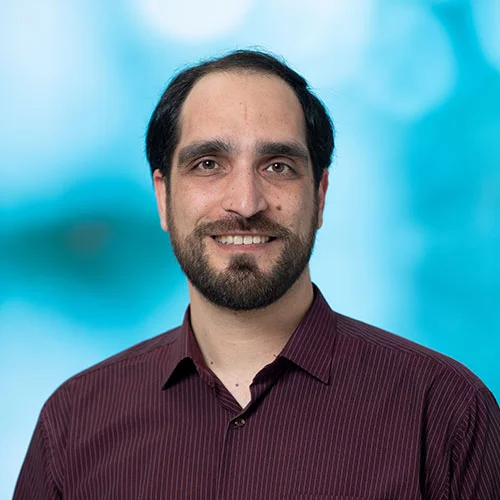New Course: Unlock the Power of Large Language Models
Large Language Models like ChatGPT and Gemini are no longer just headlines — they’re reshaping how industries think, work, and innovate. But between the hype and real-world application lies a gap: knowing how to actually use these tools effectively. That’s why Dr. Ahmad Aghaebrahimian created the new course "Unlock the Power of Large Language Models." We asked him who the course is for — and what participants will actually learn.

What was the motivation behind developing this new continuing education course?
The rapid rise of Large Language Models (LLMs) like Chat-GPT, Claude, and Gemini, along with an unprecedented increase in the production of textual data, has created unique opportunities across a wide range of fields, from biomedical research to finance and medical informatics. Yet, many professionals still lack the practical knowledge to integrate these tools into their workflows effectively. We developed this course to close the gap: to empower scientists, engineers, and technical professionals with the skills to not only understand how LLMs work but also to adapt and to deploy them for their real-world challenges.
What sets your course apart from other offerings in the field of generative AI?
This course stands out through its strong focus on applied learning tailored to domain-specific needs. We combine solid theoretical foundations with hands-on exercises and projects directly relevant to participants' fields of work. Unlike more generic AI courses, which try to cover the basic theories of several modalities in generative AI, ours intends to go deep on text and sequential data. The course includes specialized content such as LLM use in life sciences, cloud deployment, and the nuances of supervised vs. unsupervised fine-tuning. The personalized project work ensures that participants walk away with knowledge, as well as a concrete application of LLMs in their context.
What specific skills do participants acquire, both technical and methodological?
Technically, participants acquire practical experience with text analytics, LLM architectures (like encoders and decoders), and sequential data representation techniques. They also learn how to fine-tune models, to manage compute resources (on-premises or in the cloud), and to deploy LLMs effectively. On the methodological side, they develop the ability to assess the suitability of different models for specific tasks, to control limitations like hallucinations or factual inconsistency, and to design end-to-end text-based AI solutions tailored to their professional domain.
Who is this course particularly suitable for, and what prior knowledge is required?
This course is especially designed for researchers, engineers, software developers, and technical managers who are curious about applying LLMs in their work, whether in academia, healthcare, biotech, supply chain, or other sectors. While participants should have a basic familiarity with programming (preferably in Python) and an interest in data, machine learning, or AI, they don’t need prior experience with deep learning. The course is structured to bring learners from foundational concepts to implementation, making it accessible but also practical.
The course starts on August 20 and takes place in the evenings. The application deadline is August 6. More information and registration: Unlock the Power of Large Language Models
Learn more about the wide range of continuing education courses offered by the Institute of Computational Life Sciences in the field of Computational Science and Artificial Intelligence: www.zhaw.ch/icls/continuingeducation